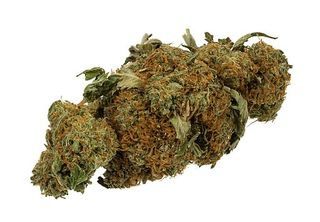Alcoholism
Weed It and Weep
The new stronger crop of evidence on marijuana's dangers.
Posted June 22, 2019

I like fun as much as the next person. So I wish I could have titled this article, “Weed, Whee!” Alas, the data supports the title I gave it.
In 2014, before I wrote a review of the literature on pot in TIME magazine's Ideas section, I didn't have much of an opinion about marijuana. I smoked it a bit in college, but didn't like that my memory was worse the next day, so I stopped but assumed that other people didn't suffer that effect. But when I wrote that literature review, my neutrality gave way to the scary data on the effects of today's much stronger marijuana.
And in 2017, my eyes were opened further when the National Academies of Sciences published a more thorough, and more frightening yet underreported meta-evaluation of the 200 best studies on marijuana. That report warned of an increased risk of everything from cancer to heart disease, motivation to IQ, social anxiety to depression to schizophrenia.
And since then, there has been a (ahem) bumper crop of scary and still underreported findings in research journals—even in the New York Times—none of which were funded by Big Tobacco/Big Marijuana.
For example, these were published just in the last year:
- A recent issue of Translational Issues in Psychological Science reported, “Marijuana use was positively and significantly associated with psychological, physical, and sexual intimate personal violence perpetration (domestic violence), even after controlling for alcohol use and problems, antisocial personality symptoms, and relationship satisfaction.”
- Newsweek reported that a forthcoming issue of the American Journal of Psychiatry will warn, “Using cannabis was linked to issues with memory, inhibition control and reasoning. The same was not (emphasis mine) observed in those who used alcohol.”
- The Lancet, among our most respected medical journals, reported, “Daily cannabis use was associated with increased odds of psychotic (emphasis mine) disorder compared with never users."
- A 2019 review of the literature in The American Journal of Medicine reports, “Changes in brain maturation and intellectual function, including decreases in intelligence quotient (IQ), have been noted in chronic users and appear permanent (emphasis mine) in early users in most but not all studies.”
- A study with an N of 22 million by University of California San Francisco researchers found an increase in vehicle accidents and hospital admissions for marijuana abuse in states that legalized marijuana.
And now, the mainstream media, which has giddily encouraged legalization, may have started to reconsider. As mentioned, recently a New York Times article “Marijuana Damages Young Brains" pointed to damage to “executive function, processing speed, memory, attention span, and concentration... The chemical in marijuana responsible for producing mood elevation and relaxation, THC, interferes with the exchange of information between neurons... States that legalize marijuana should set a minimum age of no younger than 25... They should also impose stricter limits on THC levels and strictly monitor them. Educational campaigns are also necessary to help the public understand that marijuana is not harmless."
The takeaway
Russia's or China's efforts to hurt the U.S. may be no more damaging than what we’re doing to ourselves in legalizing marijuana. It may be worse even than a second alcohol, as if one isn’t devastating enough—Just ask any family member or car accident victim of the one in eight Americans who are alcoholics.
Just as in recent decades, the overwhelming evidence on tobacco's dangers girded us against Big Tobacco’s overt and insidious messages to get us to smoke, we all should resist “Weed, Whee!” messages in favor of the less-fun but wiser reporting about marijuana.
I read this aloud on YouTube.


